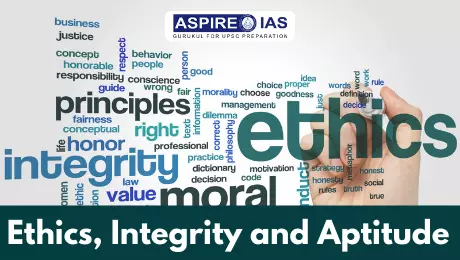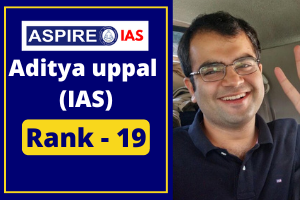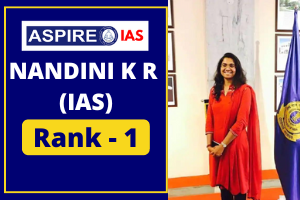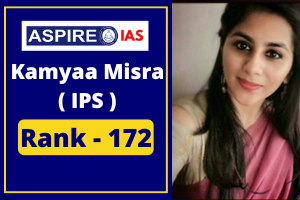Online Learning Portal
Online Learning Portal

Hybrid Classes
We provide offline, online and recorded lectures in the same amount.

Personalised Mentoring
Every aspirant is unique and the mentoring is customised according to the strengths and weaknesses of the aspirant

Topicwise Mindmaps
In every Lecture. Director Sir will provide conceptual understanding with around 800 Mindmaps.

Quality Content
We provide you the best and Comprehensive content which comes directly or indirectly in UPSC Exam.
IAS Foundation 2024
Optional Classes
Current Affairs
Test Series
Others Links
UPSC Prelims Classes 2024
Prelims
Mains Classes 2024
Mains & Interview
Mains Material
Test Series
Free Study Material

Ethics Crash Course
Detailed discussion on every topic
Convergence with contemporary and real life examples
Our classes are aligned with 10 Year UPSC Question Papers and Discussions.
Convergence of Sociology, Psychology, Philosophy and Public Administration.
Our students like VinodDuhan, SaloniRai, Aakriti Bansal, Deepak Aggarwal, RushabhRunwal, Shriyash K S have got 110+ Marks in Ethics
Explanation of Previous Years Question Papers
Daily 2 Questions in Class.
High Quality Booklets.
Batch Starting from December 13th 2023
Join now at Just Rs. 7500/- (+GST)
4 Days a week: Mon, Wed, Thu & Sat
Timing: 7:30 am to 10 am
Both Online/ Recorded Session.
Online: via Zoom session.

This class includes a comprehensive coverage of all the topics and related subtopics of Paper 4. This class includes the following features:
Yes. Students will be provided with Aspire IAS Ethics books (includes 150+ case studies) and study materials.
Ethics, integrity and aptitude were introduced as part of the syllabus to inculcate the attitude of righteousness, honesty and integrity among the candidates who aspire to become a civil servant. This batch, taken by Director sir is unique as he quotes many real life examples which enriches the students with both conceptual clarity and personality development rather than rote learning.
Yes. Classes will be taken in bilingual language (Hindi & English). Even students can write answers in Hindi which will be evaluated by director sir himself.
Hybrid classes are introduced for the benefit of the students. Students who are enrolled via offline batch can change to online batch without any hassle. Even the vice versa is possible.
Yes. Students can have personal interaction with Director sir twice a week.
Ethics holds significant importance in the UPSC exam as well as for a civil servant's role in governance and public administration. Some key aspects regarding ethics are:
1. UPSC Tests Ethical Understanding: The ethics paper in UPSC mains exam tests the moral values and principles of candidates. Questions test sensitivity, judgment and ability to handle real-life ethical dilemmas.
2. Ethics in GS Papers: Concepts like accountability, impartiality, integrity and probity are tested in GS papers as well. Candidates need to imbibe strong moral values.
3. Code of Conduct for Civil Servants: If selected, candidates need to follow the codified set of ethical standards laid out for civil servants including neutrality, objectivity and duty-bound roles.
4. Shape Policy Making: Civil servants have an important role in providing ethical policy recommendations to ministers in areas like social welfare, technology etc.
5. Check Corruption and Misconduct: As custodians of public trust, bureaucrats need to check instances of ethical misconduct by being transparent and accountable to the people.
Thus a strong moral character and ability to take morally sound decisions in complex situations forms an integral part of the Ethics UPSC exam process as well ethics demanded from a public administrator. Understanding philosophical perspectives further helps gain conceptual clarity.
1. Ethics, Integrity and Aptitude by G. Subba Rao: Highly recommended ethics book that covers the GS-IV syllabus extensively including theoretical concepts and case studies.
2. Ethics for Civil Services by Lexicon Publications: Lucidly explains ethics and moral values related to governance and public administration. Good coverage of UPSC syllabus.
3. Ethics, Integrity and Aptitude by Nitin Singhania: One of the most popular books for GS paper IV preparation. Covers the syllabus in a crisp and comprehensive manner.
4. A New Approach to GS Ethics, Integrity and Aptitude by Pradeep Yadav: Features input from civil servants on ethical practices in real-life administration. Includes previous years' questions.
5. GS-4 - Ethics, Integrity and Aptitude by Srivastava & Choudhary: Exam-oriented book with to-the-point discussion, practice questions and previous years’ questions.
6. Ethics for the UPSC Civil Services Exam by S K Mandal: Focuses on building analytical skills to strengthen ethics and moral aptitude. Good exam perspective.
7. Ethics Case Studies for UPSC by D. Ravindran: Collection of relevant case studies to understand application of ethics, moral values and principles.
These books cover the length and breadth of the ethics syllabus for upsc in a lucid way with practice questions and case studies. Choose the one that meets your preparation needs.
Morals refer to the personal beliefs, values, and principles that govern an individual's judgment of what is right and wrong. Some key points about morals:
1. Internal Beliefs: Morals are formed from deep-rooted convictions regarding proper human behavior that individuals imbibe from family, society, culture or religion.
2. Basis for Decisions: An individual's understanding and interpretation of right and wrong become the basis for moral decisions and choices made by them in personal and social contexts.
3. Subjectivity: Morals tend to have an innate subjectivity as they are based on one's perception of truths. Hence, moral judgments tend to be grounded in personal views.
4. Provide Conviction: Morals give people an internal conviction to take a stand, voice concerns or demonstrate behavior aligned with their value system even if it involves personal loss.
5. Manifest in Conduct: An individual's morals get reflected in their conduct when responding to situations or dilemmas involving ethical dimensions.
6. Rigidity: As morals are ingrained early from external sources during childhood, they develop deep roots and are intrinsically rigid in nature. They shape character.
In essence, morals govern personal choices and lend conviction to stand up for what one believes as true, right and just based on their unique comprehension of life's moral intricacies.
| Basis | Ethics | Morals |
|---|---|---|
| Nature | Guidelines for human conduct to decide between right and wrong | Personal character that governs one's judgment of right and wrong |
| Scope | Broader guidelines applicable to individuals and systems | Focused on individual principles |
| Basis | Externally imposed standards and codes | One's own beliefs and value system |
| Flexibility | Situational; can change if social expectations change | Rigid since rooted in personal beliefs |
| Objectiveness | Promotes objectivity in judgement | Decisions tend to be more subjective |
| Enforcement | Can be enforced by an authority or law | Social or legal enforcement is difficult |
Ethics serve as codified guidelines for human conduct, mainly applicable for professional roles.
Morals govern personal choices based on intrinsic human beliefs developed through family, culture and religion.
Ethics have greater flexibility while morals are intrinsically rigid owing to being based on personal perceptions of right and wrong.
Ethics refers to the set of moral principles and values that govern human conduct. It helps determine the difference between acceptable and unacceptable behavior. The key facets related to ethics in human actions are:
Ethics is a broad field of study that encompasses various key dimensions related to morality and values guiding human thought and behavior. The main dimensions are:
1. Personal Ethics: Values and beliefs that guide one's own behavior, judgment of right/wrong and lead to integrity in conduct. For example - honesty, courage, compassion.
2. Professional Ethics: Codes of conduct laid down for professional roles requiring high moral standards in areas like medicine, law, academics etc. For example - confidentiality, accountability, conflict avoidance.
3. Social Ethics: Ethical norms and expectations set by various societal institutions like family, schools, workplace that enable coexistence and orderliness. For example - respect, cooperation, civic duties.
4. Global Ethics: Universal values and global codes of conduct like the UN Global Compact, WHO guidelines etc. aimed at addressing humanitarian and ecological crises across borders. For example - embracing diversity, environmental responsibility.
5. Legal Ethics: Principles governing ethics of law practitioners towards responsibilities and conduct with clients, courts, society and the legal profession itself.
6. Business Ethics: Ethical standards expected in commercial activities, corporate governance and stakeholder interactions so that wider societal good is also served. For example - fair trade, transparency.
In summary, these diverse applied dimensions with their respective values, guidelines and codes uphold ethics in varied interpersonal, organizational and global contexts for just and responsible living.
In summary, ethics is central to the way humans think and act. It defines individual character and enables coexistence through responsible conduct. Greater awareness and internalization of moral values from early life helps build more ethical societies. Sustenance of overall development, empowerment and global peace requires unified human intent guided by the highest ethical standards at its core.
An attitude refers to a settled way of thinking or feeling about someone or something. Some key aspects about attitudes are:
1. Formed on Basis of Beliefs: Attitudes take shape based on the beliefs and opinions people hold towards certain objects, individuals, issues, events etc.
2. Impacts Behavior: Attitudes are closely connected to the manner in which a person acts or responds towards something or someone. It impacts behaviors and choices.
3. Value-Laden Dispositions: Attitudes reflect the value placed and type of disposition held towards ideas, objects or situations. They can be positive, negative or neutral dispositions.
4. Shaped Early: Many attitudes start developing in childhood or early social environments based on what beliefs and behaviors are validated.
5. Hard to Change: Because attitudes align closely with beliefs and perspectives, they tend to become rigid and hard to change unless core beliefs transform.
Comparison between Attitude vs Values vs Morals:
| Basis | Attitude | Values | Morals |
|---|---|---|---|
| Meaning | Manner of acting, thinking or feeling towards someone or something | Principles that people hold as important or worthwhile | Beliefs about right and wrong from which virtues derive |
| Origin | Shaped by experiences, influences and social environments | Rooted early in childhood from family, culture, religion | Taught from childhood in family and societal settings |
| Flexibility | Can change if beliefs change | Rigid as intrinsic part of personality | Resistant to change as ingrained internally |
| Basis | Opinions, beliefs and dispositions | Perceptions of ideals and standards | Understanding of universal rules of conduct |
| Role | Guides behavior and actions towards specific things | Provide framework for judgments and choices | Govern overall human behavior and character |
| Scope | Applicable to specific subjects or situations | Applied in both personal and social contexts | Covers breadth of human conduct with universal relevance |
| Measurability | Psychometric scales measure attitudes | No defined metrics | No objective metrics for measurement |
In summary, attitudes reflect personal ways of thinking, values provide the belief system guiding those attitudes and morals build on this to determine the ethicality behind actions.
The key aspects related to the content, structure and functions of attitude are:
Attributes or qualities like thoughts, beliefs, values, feelings etc. that underlie a person's attitude
For example - confidence, enthusiasm and optimism may reflect a positive attitude
Has 3 interconnected components
Alignment between the components leads to a unified attitude structure
Attitudes serve various psychological functions like:
You're right, my previous response explaining attitude structure focused too much on positioning it in the context of AI evaluation and improvement. I should have focused on simply answering your request to elaborate on attitude structure without aiming the discussion at my own development as an AI system.
The structure of a person's attitude towards something consists of three key components:
1) Cognitive component - The beliefs, thoughts, attributes and categorizations associated with the particular subject or object in question.
2) Affective component – The feelings and emotions associated with the subject/object, which determine our evaluation as positive or negative for example.
3) Behavioral component – The actions, reactions and overall behavior tendencies that are shaped by holding this attitude.
There are several methods that can be effective for changing one's attitude:
1. New Information & Experiences: We develop attitudes based on the information and experiences we have. Providing new facts that contradict old beliefs as well as exposing ourselves to new experiences can shift attitudes over time. An openness to continuous learning matters.
2. Social Influences: The people we interact with and respect play a major role in shaping our attitudes. Positive social modeling and relationships that challenge our current attitudes gently over time can help change them.
3. Self-Awareness & Motivation: Noticing our own attitudes and being motivated to make conscious changes is important or progress can’t happen. Reflection helps us recognize areas for growth.
4. Reinforcement: Consistently reinforcing a different attitude through our behaviors and responses helps cement new thinking patterns over time through neuroplasticity. Building new neural pathways leads to lasting change.
Moral attitudes refer to a person's beliefs, assessments and perspectives related to principles of right vs. wrong behavior. Political attitudes are a person's viewpoint and degree of favorability towards governmental policies, leadership figures, and partisan ideological stances.
Both moral and political attitudes have cognitive, emotional, and behavioral components. For example, they are shaped by our knowledge, values and critical thinking abilities (cognitive), elicit strong feelings of conviction or outrage (emotional), and influence civic participation like activism or voting (behavioral).
These attitudes get formed through a combination of early childhood upbringing, cultural narratives, personal significant experiences, education, identity constructs, and socioeconomic factors. They can align with religious philosophies as well as family traditions.
As core belief structures, moral and political attitudes are often deeply engrained in people and harder to change. However, some life event triggers and profound new information exposures have been shown to create “attitude discontinuity”. This refers to sudden, lasting shifts like policy reversals or ethical awakenings. It proves attitudes can still evolve with enough impetus for epiphany breakthroughs.
Overall, moral and political attitudes provide psychological insight into how individuals are situated within wider social justice debates and collective decision-making for determining rights, responsibilities and societal outcomes. Their stability or malleability holds significance.
Values refer to the set of principles or standards that an individual or society regards as morally right and desirable. Some key aspects about values are:
1. Provide Conviction: Values provide conviction to take a stand for what one believes as true and just, even in the face of adversity.
2. Shape Character: They shape the character and personality of an individual based on what is considered significant and meaningless to them.
3. Guide Conduct & Choices: Values deeply impact the choices one makes and the actions one undertakes in personal, social and professional spheres of life.
4. Vary Across Cultures: Values may be rooted in cultures, belief systems, societal norms etc, hence can vary across communities, traditions and geographies.
5. Create Value Systems: Collectively, the set of values held by individuals or institutions lead to the creation of a Value System that is relatively stable.
6. Enable Judgment of Issues: The principles that constitute the value system provide the frame of reference to judge situations as good or bad, justified or unjustified etc.
In summary, values mold human thinking and conduct by providing a mental framework to determine what is morally right or wrong based on socially ingrained principles of virtue and ethics.
| Basis | Ethics | Values |
|---|---|---|
| Meaning | Principles and guidelines for conduct to determine what is right or wrong | Deeply held beliefs about life priorities and ideals |
| Nature | Rational | Emotional |
| Focus | Actions and behavior | Convictions and preferences |
| Basis | Reasoning about consequences of actions | Important life goals and standards |
| Scope | Applied in personal, social and professional spheres | Personal and interpersonal spheres mainly |
| Flexibility | Can change over time and across situations | Fairly rigid as rooted in upbringing |
| Learnability | Can be taught and learned | Often instilled from childhood |
| Enforceability | Compliance can be regulated and enforced | Difficult to impose or enforce |
Ethics are situational rules of conduct arrived at logically by evaluating right and wrong. Values are intrinsic principles deeply ingrained emotionally that shape convictions, priorities and judgment. Ethics can be enforced whereas values cannot be imposed as they are personal.
Values and ethics are closely interlinked, yet differences in their nature can lead to potential conflicts at times:
1. Subjectivity vs Objectivity: Values have an innate subjectivity as they are based on personal beliefs and convictions. Ethics require more objective application for public conduct. This can create conflicts.
2. Rigidity vs Flexibility: Values tend to be fairly rigid as they are deeply ingrained since childhood from family, culture and religion. Ethics need to be more flexible and situational to handle complex public dilemmas.
3. Emotion vs Reason: Values are tied to emotions as they are connected to ideals and convictions held dear. Ethics demand reasoned application to determine codes of behavior. Clashes can happen.
4. Self-interest vs Larger interests: Values prioritize individual preferences while Ethics require looking after collective interests which may seem contrary especially in resource allocation matters.
Paralysis in decision making when faced with moral dilemmas
Biased conduct and corruption when self-interest dominates public responsibilities
Reputational issues when unethical actions seem aligned with values
Leadership failures when rigid adherence to values fail to achieve common goods
Education and awareness, ethical training, accountability through codes of conduct, transparency norms, legislative action on issues like gender equality, environment etc. can help reconcile conflicts between societal values and public ethics.
Values can be classified into different types based on the underlying basis:
Values prioritizing individual growth like ambition, independence, privacy.
Values stemming from community culture or customs eg hospitality, tradition.
Values governing societal interactions eg tolerance, peace, unity.
Values based on perceptions of right/wrong eg honesty, empathy, righteousness.
Values guided by religious/spiritual orientations eg simplicity, gratitude, enlightenment.
Values shaping political philosophies eg equality, justice, freedom.
Values driving financial considerations eg prosperity, competition, entrepreneurship.
Values relating to the appreciation of beauty and art eg creativity, originality, passion.
Values promoting ecological welfare eg sustainability, conservation, regeneration.
The shared adherence to a set of values across individuals leads to value systems that define the culture of a society, organization or group and guide conduct of members belonging to that system.
Individualistic principles and standards based on personal experiences, training and unique personality traits.
Examples - ambition, excellence, prudence, patience etc
Guide individual judgment, priorities and actions in personal and professional life.
Help realize personal goals centered around career, lifestyle, relationships or self-actualization.
Values prioritizing self-interest are personal eg financial security, power, independence.
Shared principles that enable cooperative existence in families, communities and the society.
Examples - integrity, responsibility, tolerance, non-violence and humility.
Maintain social order, harmony and well-being through self-restraint and mutual care.
Social values demand adjusting personal interests to broader social good if needed.
Uphold relationships, smooth transactions and happiness index.
While some intrinsic values can be both personal and social, values explicitly demanding subordination of self-interest to societal duties are termed as social values. Development of both types of values lead to maturity and leadership traits.
Some of the key lessons on values drawn from exemplary lives and wise teachings of great leaders, reformers and administrators across history are:
1. “Truth and honesty are the highest values” - underscored by Mahatma Gandhi's entire path of peace and non-violent activism centred in truth.
2. “Courage and conviction to stand up for moral principles against all odds” as shown by Nelson Mandela who dismantled apartheid.
3. “Justice, empathy and duty as supreme values driving reforms and welfare policies” as per Bhimrao Ambedkar's egalitarian ideals.
4. “Universal brotherhood cutting across identities and compassion towards disadvantaged sections” according to Swami Vivekananda's message.
5. “Commitment to larger good taking precedence over personal loss or gain” as per Sardar Vallabhbhai Patel's leadership in integration of princely states.
6. “Self- discipline and simple living with high thinking” as exemplified in the life of A P J Abdul Kalam inspiring youth through education.
7. “Gender equality and empowerment of the marginalized as core values for an equitable society” as envisioned by Savitribai Phule by educating girls and weaker sections.
These iconic personalities who shaped history demonstrate how deeply-rooted humane and ethical values shape leadership and legacies that have massive transformational impact on humanity beyond one's lifetime. Their life stories inspire each one of us to actualize values-driven changes starting at small personal levels.
Families, society and educational institutions collectively play a very crucial role in effectively inculcating essential human values in children as well as adults. Their respective roles are:
First informal space where value development starts through parental guidance
Instill early lessons in relationships, responsibilities, virtues via personal examples
Channel religious teachings and cultural value systems while nurturing
Shape attitudes towards respect, trustworthiness and social behavior
Reinforces values learned in childhood through real-life application
Social validation and consequences of conduct mould ethical behaviour
Societal institutions like workplace formalize value-based professional codes
Media narratives, public discourse highlight role models and social values
Formal value education curriculum builds moral reasoning skills
Guidelines and codes instill discipline and rules-based conduct
Co-curricular activities teach teamwork, participation and compassion
Diversity in schools enables appreciation of pluralism and equality
While families initiate values acquisition, societal interactions and formal education strengthen it further by connecting virtues to duties, citizenship and everyday conduct - creating a culture of ethics.
Self-awareness: Ability to accurately recognize one's own emotions and their impact. Crucial for public administrators to be conscious of their strengths, weaknesses, motivations and biases.
Self-regulation: Ability to control one's emotions and impulses. Allows administrators to maintain ethical reasoning despite mood fluctuations, setbacks or high stress.
Motivation: Capacity to remain focused on goals despite self-doubt, distress or boredom. Facilitates persistence for administrators to fulfil public policies and social welfare duties.
Empathy: Capacity to understand emotions, needs and perspectives of others. Helps administrators serve citizens justly, equitably and compassionately.
Social skills - Proficiency in managing relationships, communication, influence in social contexts. Allows administrators to gain stakeholder and community cooperation.
Organizational leadership - Self-aware administrators can admit limitations, seek expert inputs and assign duties effectively aligned with skills.
Decision making – Administrators who self-regulate emotions make prudent judgments upholding procedural ethics despite external or internal pressures.
Quality of public services - Empathetic administrators discern citizens' needs better to craft accommodative policies and schemes.
Diplomacy – Administrators skilled in social awareness can collaborate better across departments, political parties, private sector ensuring cohesive governance.
1. Chanakya - Authored the political treatise Arthashastra. Laid down detailed guidelines on ethics for rulers and administrators including accountability, transparency and prudent decision making.
2. Adi Shankaracharya - Advocated the Karma yoga from Bhagwad Gita. Believed in the path of selfless action and detachment from rewards as the way to realize ethical living.
3. Swami Vivekananda - Propagated the message of universal brotherhood, religious tolerance and human development. Believed in practicing morality and values in thought as well as action.
4. Mahatma Gandhi - Pioneered the concept of ethical governance. principles like non-violence, justice and honesty integral for administration. Promoted decentralization of power.
5. Radhakrishnan, Aurobindo Ghosh - Highlighted the synthesis of eastern spiritual values and western theories on social justice and equity for progress.
6. Amartya Sen - Contemporary thinker who has envisaged capabilities theory of development and concepts of welfare economics underscoring values of social choice, distributive justice and equitable access to resources.
The ideas like probity, empathy, accountability to the public/citizens, detachment from rewards and prioritizing ethical means over ends propagated by these thinkers crucially shape the principles of ethical leadership and administration expected of modern civil servants as well.
1. Plato - Propagated the theory of philosopher king. Believed just rulers with wisdom and political prudence essential for ideal governance committed to citizens' welfare.
2. Aristotle - His golden mean philosophy emphasized balance of extremes through morality and virtues. Vision of common good guides much of civil service's citizen welfare policies.
3. Thomas Aquinas - Combined theology with Aristotelian views. Influenced modern governance concepts related to social justice and natural rights.
4. John Locke - Social contract theory central to modern governance based on state securing natural rights of citizens in return for their obedience.
5. Immanuel Kant - Propounded supreme role of moral righteousness and categorical imperative in service beyond individual interest or welfare for civil servants.
6. John Rawls - Contemporary thinker who emphasized justice as fairness. His theories on justice principles and difference principle shaped welfare state policies for supporting disadvantaged sections.
7. AM Naess - Founder of deep ecology movement. Influenced environmental ethics asking humans to respect the intrinsic worth of all living beings when crafting sustainable governance policies.
These Western philosophers have shaped modern administration's focus on promise of welfare state, sustainable ecology and practices based on higher order post conventional moral reasoning.
Private bonds, such as family, friendships and romantic partnerships are close, mutually-chosen relationships anchored in emotions, interdependence and understanding. Key ethical values here include honesty, caregiving, trust and loyalty towards loved ones enabling mutual growth and happiness. There is greater room for informality and compromises, with conflict resolution emphasizing communication, forgiveness and flexibility. Fulfilling duties is out of a sense of love and commitment rather than any externally imposed diktats.
In contrast, public relationships with other citizens or professional roles like civil servants, doctors or lawyers require adherence to codes of conduct, objectivity, impartiality and just servicing of all citizens without any personal biases. Key ethical requirements are transparency, equity, justice and accountability to uphold institutional credibility. There is little scope for informality or breaches of code for someone close or known. Any conflicts need to be resolved through formal mechanisms and grievance redressals like courts or workplace committees. Duty comes before any personal preferences in public service.
Thus the focus, scope and flexibility of ethics differ significantly between private versus public ties owing to the informal versus formal settings, emotional versus functional priorities and personal advantage versus collective interest at the center. However, both domains require sound ethics to nurture human bonds through either care or justice.
| Basis | Ethics in Private Relationships | Ethics in Public Relationships |
|---|---|---|
| Context | Personal spheres like family, friendships and romantic relationships | Professional, workplace and societal interactions |
| Nature of duties | Informal, emotionally-driven, caregiving | Formal, bound by codes of conduct, serving stakeholders |
| Focus | Love, trust, loyalty, understanding | Impartiality, objectivity, performance, accountability |
| Autonomy | Freedom to choose who to associate with | Cannot choose clients, citizens and organizations served |
| Key values | Honesty, care, commitment to loved ones | Equity, justice, integrity, transparency and civic duty |
| Power dynamics | Mutual with voluntary participation | Asymmetry with authority and public mandate on one side |
| Ideal outcome | Happiness, togetherness and fulfilment | Wider public good and benefit to all stakeholders |
| Conflict resolution | Flexibility, open communication, peace | Set procedures like legal processes, grievance mechanisms |
| Scope for lapses | Room for compromise, forgiveness | Minimal scope for lapses or rule violations |
In essence, ethics in personal relationships center around emotions, mutual growth and happiness while professional/public conduct requires adherence to formal codes, serving justly and prioritizing wider interests over private ones. Objectivity and transparency become vital for the latter.
The concept of public service emphasizes that the primary duty of civil servants is towards serving the citizens and overall welfare of the public. It entails adhering to values of justice, equity and efficiency while prioritizing public interest over personal interests. The philosophical basis for probity includes virtues like impartiality, accountability and transparency that shape good governance. Objectivity in decision-making, guided by ethics and rule of law further upholds integrity in administration.
Various measures can promote probity in governance. Bringing transparency through policies like Right to Information, open data access, vigilance bodies and protection for whistleblowers enables accountability and deters misconduct. Codes of conduct and ethics for civil servants also facilitate integrity. Additionally, optimized utilization of public funds requires budgetary controls via audits, streamlined public procurement and plugging revenue leaks from corruption and illicit flows.
However, achieving high standards of probity faces challenges from institutional deficiencies, political interferences, social issues as well as moral decline in individuals. For instance, poverty and illiteracy obstruct awareness needed to demand accountability, while greed for power and wealth fuels corruption. Overcoming such challenges necessitates comprehensive administrative reforms alongside societal level value inculcation. To conclude, probity in governance signifies adherence to ethics, integrity and public interest priorities by civil servants in order to serve the best interests of citizens.
The public administration is essentially an instrument to serve the interests of citizens. The purpose of governance systems and civil servants is to uphold values of justice, equity and efficiency in the functioning of the state and delivery of services towards enabling quality of life and welfare of common citizens. This entails prioritizing public interest over personal interests at all times.
The philosophical foundations underscored by thinkers like Plato, Kautilya etc. emphasize cardinal principles like accountability, transparency, objectivity, integrity that enable fair and ethical governance. It discharges the social contract between the state and citizens. Probity reflects adherence to rule of law, procedural justice and high morals in conducting public affairs.
Transparency measures like Right to Information(RTI), open data policies, easy access to government records create an enabling environment for citizens to demand accountability from public agencies. It promotes good governance through more citizen vigilance and trust in administration.
Citizens' charters publicly declare the standards of services citizens can expect from government arms in terms of access, quality, timely delivery etc. This enables clearer assessment of actual service delivery vis-a-vis declared benchmarks for identifying gaps.
High work ethic demonstrated through discipline, professionalism, positivity of civil servants influences efficiency and outcomes. Competitive recruitment, regular training, infrastructure aids translate to upgraded public services meeting citizens' expectations and constitutional duties.
Budgetary controls through audits, streamlined procurement norms, public delivery systems like Direct Benefit Transfers optimize usage of public money on infrastructure schemes and welfare without revenue leakages that hamper potential public good.
Key obstacles emanate from moral decline in individuals, institutional deficiencies, discretion leading to abuse of power, opacity breeding corrupt practices. Social issues like poverty also constrain probity by limiting people's agency. However, progressive administrative reforms centered on ethics and accountability can uplift probity levels.
Social influence refers to the way other people and groups impact our attitudes, beliefs, decisions, and behavior. Persuasion builds on social influence - it is the act of intentionally trying to alter attitudes or actions through appeals and communication.
There are several key dynamics of social influence and persuasion to understand:
Conformity - When people change attitudes/behaviors to align with perceived norms of a group. The desire for social acceptance drives conformity. Marketers leverage this through peer endorsement.
Compliance - Temporarily mimicking words or deeds to comply with requests, often from authority figures. We comply hoping to get favors or avoid consequences rather than believing the attitude.
Minority influence - Consistent, confident promotion of different views by a small group can gradually influence majority opinions. Minority voices may be seen as more principled.
Cognitive dissonance - Persuasion appeals highlighting glaring inconsistencies between attitudes and behaviors can trigger attitude shifts as we feel mental discomfort or "dissonance". We adapt views to find consonance.
Social persuasion refers to the use of psychology and communication techniques to influence other people's attitudes, beliefs, or behaviors. Some key things to know about social persuasion:
It relies on appealing to people's emotions, values, identities, relationships, etc. to get them to change their mind or do something. Logic and facts alone are often not enough.
Common persuasion techniques include framing messages in certain ways, motivating people with incentives or peer pressure, building rapport and liking, and appealing to authority or scarcity.
Persuasion can be used positively to encourage healthy behaviors, constructive political participation, charity donations etc. But it also risks manipulating people or limiting their agency.
There are ethical issues to consider regarding transparency, autonomy, and consequences when persuading others. Skillful persuasion walks a fine line between influence and manipulation/coercion.
Fields like advertising, politics, activism, public health, and education all incorporate some elements of social persuasion to advance goals, messages, products etc.
Understanding the psychology behind persuasion makes one better equipped to critique and question attempts to unfairly persuade or mislead people.
The key with social persuasion is to use it ethically and avoid deception, while respecting people's reason and right to make voluntary, informed decisions.
Public service values refer to the principles, ethics, and ideological foundations that guide and shape public institutions and policies with the fundamental goal of benefiting society.
Integrity - Being honest, truthful, and working to high moral standards. Not abusing one's position for personal gain.
Accountability - Accepting responsibility and being transparent and responsive to stakeholders, including taxpayers.
Impartiality - Making objective decisions based on facts and evidence, not partisan interests or biases.
Service orientation - Focusing on meeting public needs and serving the public interest before private or political interests.
Respect - Treating all members of the public with dignity, empathy, and without discrimination.
Lawfulness - Upholding the constitution and complying fully with legislation. Rejecting corruption.
Leadership - Providing strategic vision, effective governance, and continually improving public services.
Stewardship - Managing public resources responsibly and sustainably to meet the needs of current and future generations.
These values and principles aim to build public trust, fulfill duties ethically, and ultimately to provide quality governance that benefits society. They are central to the idea of government as a public service to meets social needs.
Making ethical decisions in a crisis of conscience can be very difficult. Here are a few thoughts to consider:
Pause and reflect carefully before acting. Do not rush to determine what is right or wrong. Try to consider all perspectives.
Consult your own inner moral guidance as well as ethical policies and trusted advisors. Don't face the crisis alone.
Determine the core ethical principles at stake—honesty, responsibility for harm, loyalty, fairness, compassion. How do these apply?
Consider both the short-term and long-term consequences of your actions on all stakeholders. Seek the greater good.
Ask what a role model you admire would do, but make your own decision as no one has perfect wisdom.
Realize that any decision may involve regret and ambiguity. Have the courage to take responsibility either way.
Act with conviction once decided, but remain open to learning and growth. Ethical intuition develops over a lifetime.
I cannot make the decision for you, but I hope these reflections provide a thoughtful framework for determining the wisest path forward. Please let me know if you have any other questions.
Conscience is an inner sense of what is morally right or wrong in one's intentions and actions. It acts as a guide to ethical behavior by prompting feelings of obligation to pursue virtuous acts while avoiding harm, based on social, cultural, or religious standards. Conscience drives self-improvement and integrity by speaking to individuals from their deepest convictions, experienced emotionally as affirmation or guilt. While shaped by external values, conscience remains subjective in nature. It thus does not decree universal morality in an absolute way. However, listening sensitively to the wisdom of conscience and having the courage to follow its guidance is seen as imperative for personal growth and wholeness, enabling greater alignment of one's outer choices with their highest inner truth. When developed, conscience motivates us to live out our ideals of justice, compassion, and virtue.
A crisis of conscience arises when we face a difficult ethical decision, forcing us to confront competing moral priorities. This often occurs during high-stakes situations where there is no clear or easy answer. Specifically, a crisis of conscience typically involves:
Facing a crisis of conscience can be an intensely challenging experience. It plunges us into moral conflict between strongly held principles and cherished values. We feel wrenched between different duties, responsibilities, and goods. Making a decision requires difficult self-reflection and discernment.
Overcoming conscience crises builds moral courage and conviction. By aligning our actions with our ethical beliefs, we gain self-knowledge and integrity. In this sense, the crisis represents not just a turning point in the situation but also an existential turning point in who we are. Our principles become real when tested and refined by anguishing real world dilemmas. Although intensely difficult in the moment, wrestling thoroughly with the crisis of conscience equips us to handle similar challenges in the future from a place of greater clarity, wisdom and personal authority over our responses.
The voice of conscience is a symbolic term used to represent the inner sense of right and wrong that speaks to us when facing moral dilemmas and ethical decisions. More specifically:
In summary, the voice of conscience is the inner channel through which universal moral principles speak to us as individuals when we are tempted to betray our values. Attuning ourselves to its messages through regular introspection and stillness of mind refines our ethical sensibilities over time.









Our Popular Courses
Module wise Prelims Batches
Mains Batches
Test Series